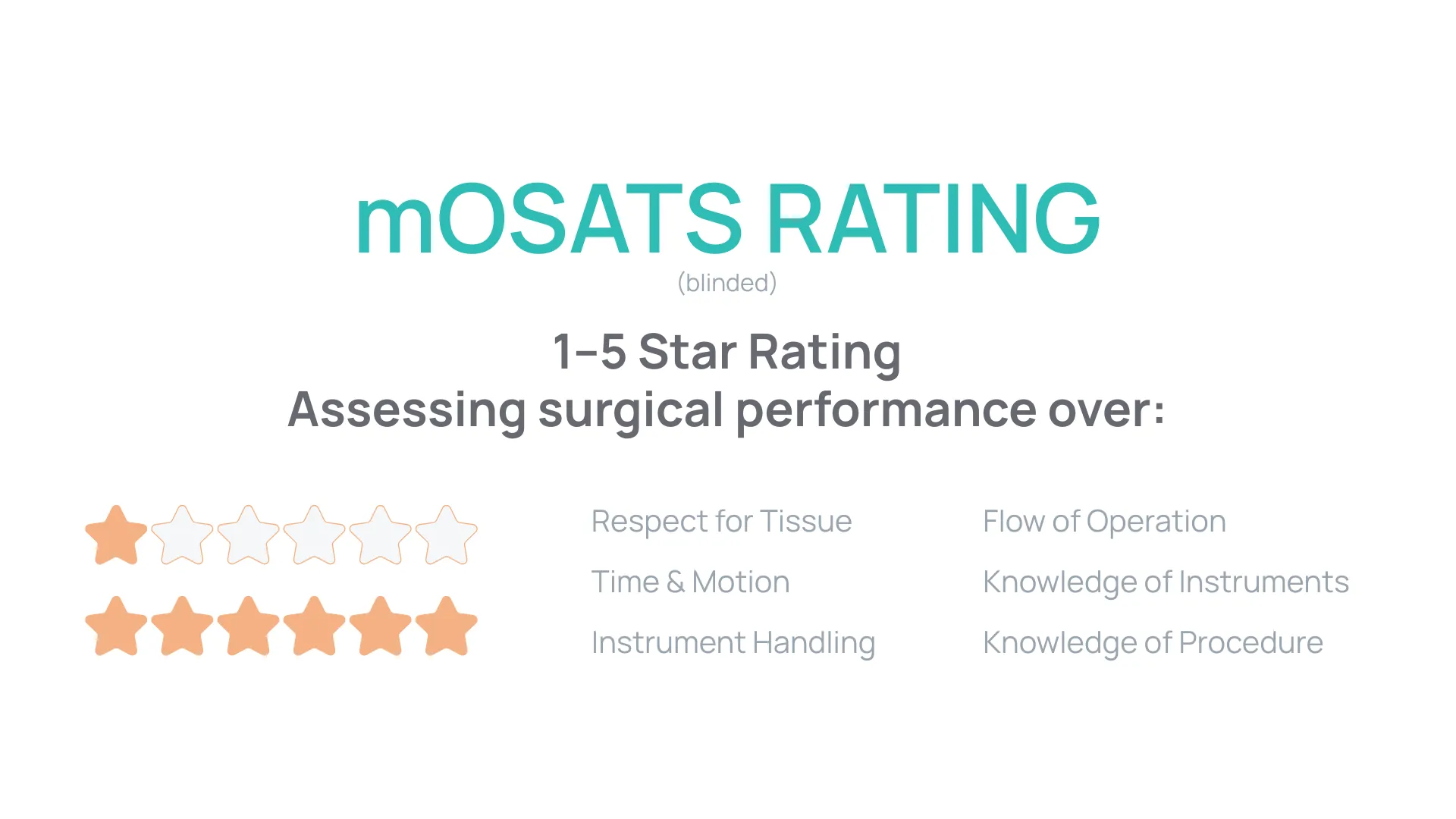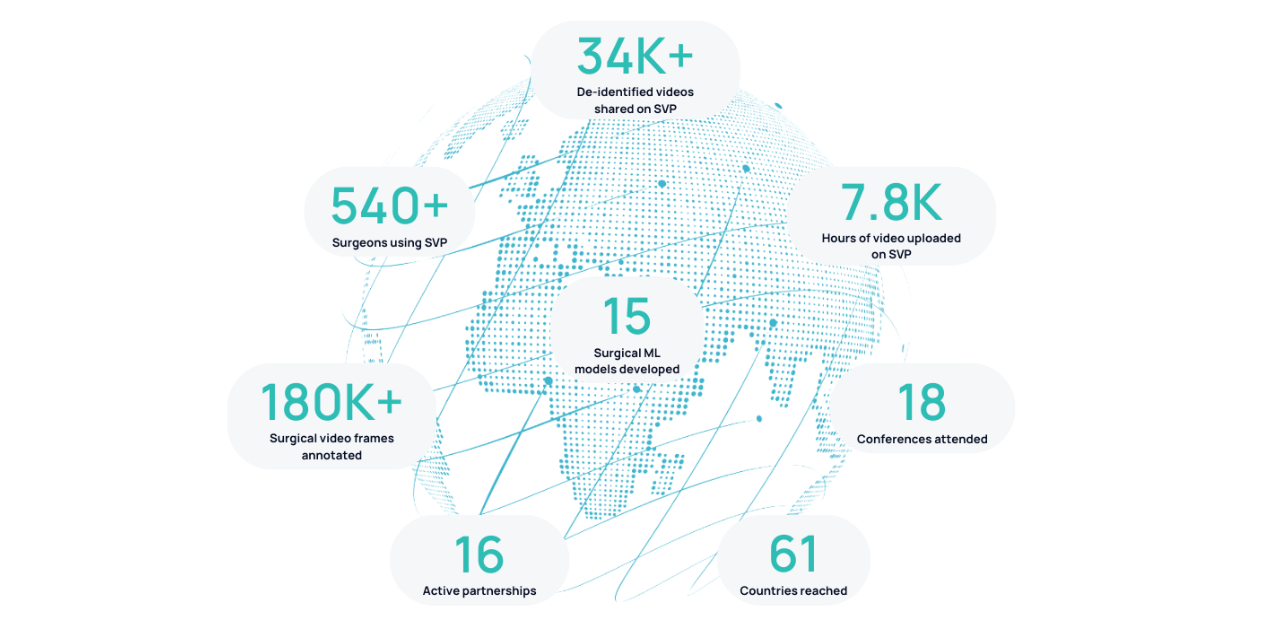.webp)
University College London’s (UCL) Surgical Technology at Queen Square (TeQ) Group is working to close a critical gap in access to safe, high-quality neurosurgical care with a grassroots Global Coaching Program. Partnered with Surgical Data Science Collective (SDSC), the team is working to launch AI-assisted coaching programs in surgical centers across the globe, including low- and middle-income countries (LMICs), to facilitate sustainable skill transfer, promote an educationally rich surgical culture, and improve patient outcomes.
Drawing on lessons from a successful single-center pilot study in London, and utilizing SDSC’s Surgical Video Platform (SVP) as the foundation, this program will bring the power of AI and global collaboration to bear on one of global surgery’s biggest challenges: training and supporting surgeons in resource-limited settings at scale.
Reimagining Surgical Coaching for Global Impact
By combining structured coaching models with surgical video analysis, UCL and SDSC are making it possible for neurosurgeons around the world to create a scalable, peer-driven learning culture outside of the operating room. Traditionally limited by time and human resources, surgical coaching requires countless hours from experts to review case videos and provide feedback. SDSC and UCL are working to mitigate these barriers to scalability.
The effort begins with endoscopic pituitary surgery – procedures that remove tumors from the brain’s pituitary gland using nuanced endoscopic technique and delicate anatomical manipulation. Despite performing these surgeries every month, many LMIC centers lack structured feedback, video analysis tools, or formal coaching to help their surgeons improve.
By embedding AI-driven video analytics into the process, this initiative is working to reduce the strain on surgical mentorship. SDSC’s machine learning (ML) models classify surgical steps, track instrument use, and generate key workflow metrics from operative videos. These insights will be seamlessly integrated into monthly coaching sessions, where pituitary surgery teams – including attendings/consultants and residents – will discuss technical performance, review anonymized case data, and reflect on learning points collaboratively.
UCL’s TeQ Group recognizes that surgical training can’t continue to rely on one-on-one mentorship models alone. Instead, we need to bring the coaching to the surgeons. With SVP, we are paving the way to do exactly that.
Partnering with International Surgical Teams
This project isn’t a one-size-fits-all solution. Each coaching program will be co-designed with neurosurgical teams to recognize each center’s unique clinical environments. Tailored to local context, an initial needs assessment and gap analysis will ensure that both technological barriers and educational needs are addressed up front. Once the necessary alterations are made, each team will build a library of surgical videos, participate in monthly coaching sessions, and contribute feedback on the educational value of the program.
Here’s how the programs will work:
- Surgeons will record their pituitary surgeries and upload them to SVP.
- Case videos are selected for the coaching session.
- SDSC’s AI models analyze each video to automatically identify surgical phases, track instrument usage, and produce heatmaps and flow analytics.
- Coaching sessions to review cases, discuss feedback, and highlight opportunities for improvement.
- Record potential clinical impacts of the coaching program.
Early Results
In a single-center pilot study, this video-based coaching model showed promising results. The program successfully demonstrated feasibility, acceptability, and appropriateness, along with improved surgical performance reflected by a significant increase in modified OSATS scores.1 Various patient outcome metrics also saw improvements, such as the median length of hospital stay decreasing from five days to four.1 The next step is to bring this model to multiple centers around the world, and carry out long-term follow-up.

As such, UCL is now actively seeking out LMIC neurosurgery teams to adapt the coaching program to their local training cultures and resources. Each participating center can receive:
- Free access to video recording and upload software
- AI-powered video analysis through SDSC’s platform
- Monthly coaching sessions designed around their case mix and training needs
- Grant-funded hardware like study laptops and external drives to make participation feasible
- Ongoing support to build a sustainable coaching culture
Surgeons at each site will take an active role in shaping the program – deciding which cases to review, how to structure sessions, and how to best integrate coaching into their existing teaching programs.
The Role of AI
To support this initiative, SDSC’s ML engineers and researchers are continuously improving our neural network models for pituitary surgery. Just like our Phase Recognition model, they use an international consensus-based framework that defines surgical steps and phases.2 The steps consist of goal-oriented sequences of actions, such as tumor resection, and are grouped into three overarching phases; nasosphenoid, sellar, and closure. These checkpoints will allow teams to pinpoint where skills can be refined.
Crucially, this AI doesn’t replace human feedback – it enhances it.
The technology highlights trends and provides objective data, but the heart of the coaching sessions remains open discussion, team reflection, and shared learning. And as the program grows, these AI tools will become more adaptable, enabling their use in other surgical specialties and global contexts.
Paving a New Path for Surgical Training
This global coaching initiative reflects a bold vision for the future of surgical education, where cutting-edge technology and community-centered coaching joins forces to fill training gaps worldwide.
By enabling surgeons to learn from their own cases – and each other – UCL and SDSC aim to build a global surgical community where multidirectional knowledge transfer and skill refinement are a part of everyday practice.
And though this journey starts with pituitary surgery, the long-term vision is much broader. Just as NeuroKids and SDSC partnered to scale training for pediatric hydrocephalus surgery, this program could one day support training in epilepsy surgery, other types of brain tumor resection, and more – bringing the best of AI and global collaboration to the operating rooms that need it most.
- Khan DZ, Newall N, Koh CH, Das A, Aapan S, Layard Horsfall H, et al. Video-based performance analysis in pituitary surgery - part 2: Artificial Intelligence Assisted Surgical Coaching. World Neurosurgery. 2024 Oct;190. doi:10.1016/j.wneu.2024.07.219
- Marcus HJ, Khan DZ, Borg A, Buchfelder M, Cetas JS, Collins JW, et al. Pituitary society expert Delphi Consensus: Operative workflow in endoscopic transsphenoidal pituitary adenoma resection. Pituitary. 2021 Jul 6;24(6):839–53. doi:10.1007/s11102-021-01162-3



.png)
.png)
